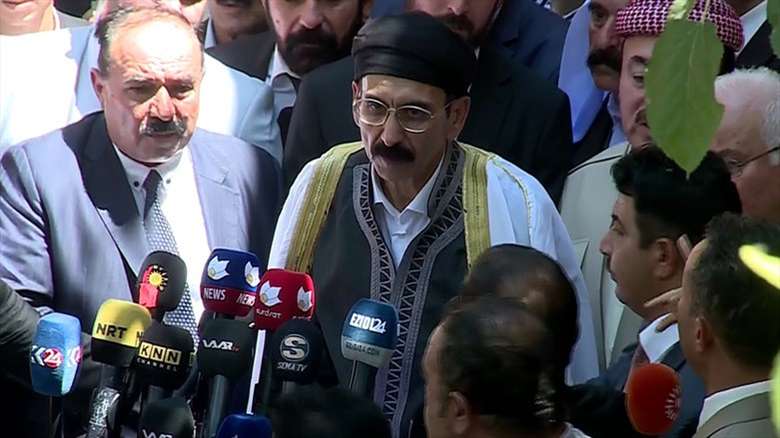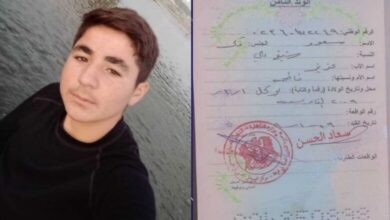
New leader of Yezidis sworn in at ceremony in Kurdistan Region
Yekiti Media
Hazim Mir Tahseen Beg was inaugurated as the leader of the Yezidi (Ezidi) religious minority during a ceremony on Saturday at the temple of Lalish, the faith’s most holy site, located in the Kurdistan Region.
“Starting today, I will be of service to all Ezidis around the world and I will establish a council of Ezidis with more than 60 percent of its members from Sinjar [Shingal],” said the new leader in a speech.
The position has been vacant since the previous leader, Beg’s father, passed away at the age of 86 in January in the German city of Hanover after a lengthy battle with illness.
“We will work with the Kurdistan Region’s government and the Iraqi Government to find a solution to help displaced Ezidis return to their home,” Beg added.
He also said he wished to thank senior Kurdish officials for their aid in helping the beg family in his selection, including Masoud Barzani, former president of Kurdistan Region, current president Nechervan Barzani, and regional Prime Minister Masrour Barzani.
“I warmly congratulate you and our Ezidi brothers and sisters on your succession,” said Masoud Barzani in a statement. “The Ezidi people represent an old and critical part of the Kurdistan community and I am hopeful that you will serve them to the best and we offer our complete support.”
President Nechirvan Barzani congratulated the newly elected leader in a statement that read, “We must all work together to ease the heavy load on the Ezidi people’s shoulders… We will combine our efforts with the new Mir (Prince) of the Ezidis to facilitate the return of displaced Ezidis to their home and to save those who have been kidnapped by the Islamic State.”
Prime Minister Masrour Barzani also made a congratulatory phone call to Beg, wishing him success in his duties, according to a statement from his office. “Our Ezidi brothers and sisters are an essential part of the Kurdistan region’s community and we will work together to ease their burden.”
There are about one million Ezidis worldwide, with almost half of them living in Iraq and the autonomous Kurdistan Region.
The emergence of the Islamic State and its violent assault on Shingal in 2014 led to the displacement of hundreds of thousands of Ezidis. Most of them fled to the Kurdistan Region, while others resettled in neighboring countries in the region or Western states.
Others were not as lucky and remained stranded in the war zone, where they experienced atrocities and mass executions at the hands of the extremist group for years. Militants subjected women and girls to sexual slavery, kidnapped children, forced religious conversions, executed scores of men, and abused, sold, and trafficked women across areas they controlled in Iraq and Syria.
Shingal, an area disputed between Erbil and Baghdad, is currently under the control of Iraqi forces and Shia militias. These forces, plus a limited number of Peshmerga and other Kurdish fighters, are present in Shingal and its outskirts with reports of tensions between them over who will control the strategic town that lies near the Syrian border.
K24




